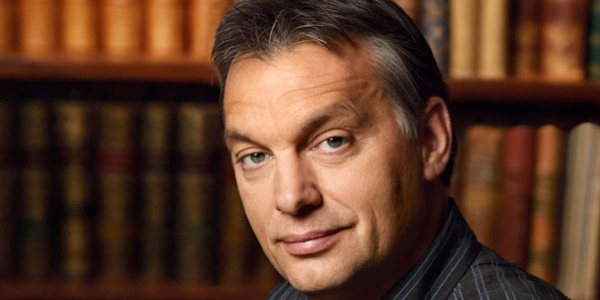
Good Hungarian-Finnish Relations
9 November 2007
The former Prime Minister of Hungary spoke of the good relations with Finland and answering to a question, he stated:
"Perhaps it is with Finland that Hungary has been maintaining the most undisturbed foreign relations for decades now", declared Mr Orbán after he had met the Finnish Minister of Foreign Affairs. Two issues of Hungarian interest were discussed, one of them being Kosovo. Regarding the future of the region, the former PM stated that the practice of Finnish minority policy may help contribute to a possible European approach to the situation.
"Finland has an exemplary policy of minority protection. Had all European countries chosen such a wise solution and had all nations decided to implement such generous policies as the Finnish had, then there would be very few minority problems in today's Europe. We very much hope that the Finnish experience will be referred to when the plans for the future of Kosovo are discussed", emphasized Mr Orbán.
The other theme of the discussion was the question of European energy security. According to the chairman of Fidesz, "Hungary and Finland share the conviction that it is in every nation's interest to finally develop a common European energy policy that would render us less dependent and less likely to be divided on the issue than we are today."
"We in Finland pay very much attention to Hungarian politics: especially to foreign policy, but domestic issues provide us with many points of interest as well", said the Finnish Minister of Foreign Affairs. Referring to the idea of a common European energy policy, Mr Kanerva believes that the two countries can have many common objectives. "We should establish a common strategy, but, as I am sure you all know, all nations have their private interests", he added.
With respect to minority policy, the Finnish Minister of Foreign Affairs said he knew all cases were different but there were common basic principles which should be applied in every situation. "Finland has two sources of experience in this field which we are ready to share with anyone: on the one side, regarding legislation, and on the other, with respect to day-to-day coexistence with minorities. It is an important task for Europe to learn from the good examples", declared Mr Kanerva, who also said that as well as the Finnish people, he personally had very strong emotional ties with the Hungarian people and as a result of the activity of Finland's newly accredited ambassador to Hungary, more and more tourists come to a visit from his country.
Asked about the report of the "Gripen Committee" which had been released earlier that day, suggesting that he personally had influenced the decision to buy Gripen fighter planes, Mr Orbán said he could not comment on the allegation before reading the paper. A serious corruption scandal is being uncovered in Sweden at the moment, and this process could reach as far as Hungary. This investigation, however, does not concern the centre-right government led by Fidesz from 1998 to 2002, declared Mr Orbán.
"On the other hand, it deals very much with the year 2003 when Hungary's socialist government, for some strange reason, decided to immediately modify the agreement signed by the previous government. I very much regret that as far as I know, the committee's report makes not a single reference to this decision", emphasized the chairman of Fidesz who repeated that his government's decision to buy Gripen fighters was first of all justified economically as well as professionally, and in terms of military strategy as well.
On 10, September 2001, the Fidesz-led centre-right Hungarian Government led by PM Viktor Orbán decided to lease 14 JAS-39A/B Gripens from the Swedish Air Force. A lease agreement for 10 years was signed on 20, December 2001.
After the Parliamentary elections in April, 2002, the new socialist Government led by PM Péter Medgyessy aimed at an upgraded version of the Gripen fighter. On 3, February 2003, a modified agreement was signed for a 10 years lease of 12 single-seat JAS-39C and 2 twin-seat JAS-39D Gripens added with a commitment to buy the aircraft after the leasing period.
orbanviktor.hu



